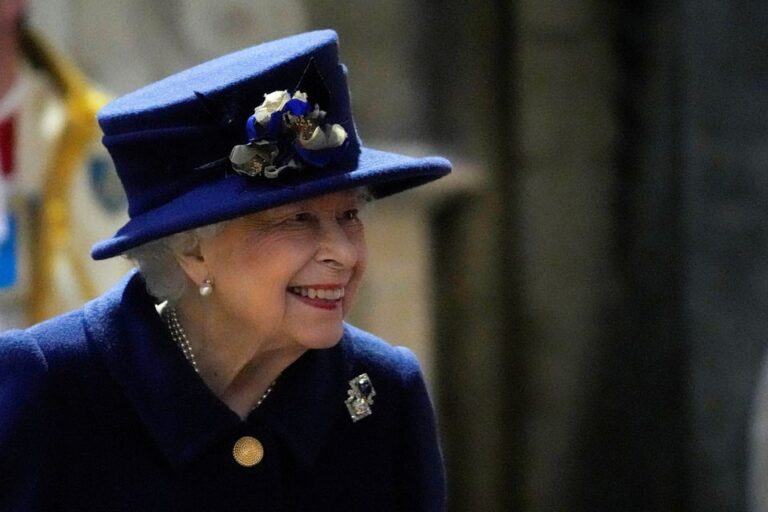
(Reuters) – Britain’s 95-year-old Queen Elizabeth spent a night in hospital for the first time in years for what royal officials termed ‘preliminary investigations’ but was in good spirits and back at work at her Windsor Castle home on Thursday.
The world’s oldest and longest-reigning monarch cancelled an official trip to Northern Ireland on Wednesday. The palace said the queen had been told to rest by her medical staff, and that her ailment was not related to COVID-19.
“Following medical advice to rest for a few days, the queen attended hospital on Wednesday afternoon for some preliminary investigations, returning to Windsor Castle at lunchtime today, and remains in good spirits,” the palace said in a statement on Thursday.
A royal source said the queen had stayed at the King Edward VII hospital in central London for practical reasons and that her medical team had taken a cautious approach.
Elizabeth, who is queen of 15 other realms including Australia, Canada and New Zealand, returned to her desk for work on Thursday afternoon and was undertaking some light duties, the source said.
She had spent Tuesday night hosting a drinks reception at Windsor for billionaire business leaders such as Bill Gates after Prime Minister Boris Johnson convened a green investment conference ahead of the COP26 climate summit.
The queen had appeared in good health then, smiling happily as she met the guests.
The head of state, who next year celebrates 70 years on the throne, is known for her robust health. The last time she is thought to have spent a night in hospital was in 2013 when she was suffering from symptoms of gastroenteritis.
She had a successful surgery to treat an eye cataract in 2018, and also had a knee operation in 2003. However, royal officials are loathe to discuss health issues in general, saying medical matters are private.
Earlier this year, Prince Philip, her 99-year-old husband of more than seven decades, died at Windsor Castle.
But that has not stopped her from carrying out her official engagements, although her age has meant she has handed more duties to her son and heir Prince Charles, and to other members of the royal family.
Earlier this month, she was seen using a walking stick for support in public for the first time, apart from after her knee operation.
TURBULENT TIMES
Her long reign has seen some turbulent times and the last couple of years have been particularly difficult from her family and for Elizabeth personally.
Not only has she lost her husband, who she described as her “strength and stay”, but her second son Prince Andrew has had to quit royal duties over his links to the late U.S. financier Jeffrey Epstein and allegations of sex crimes.
Her grandson Prince Harry and his American wife Meghan have also stepped away from royal duties to move to Los Angeles from where they delivered some barbed attacks on Buckingham Palace.
Despite the setbacks, polls show Elizabeth, who acceded to the throne in 1952 when Britain was shedding its imperial power, remains popular and highly regarded in Britain, symbolising stability for generations.
Her quiet and uncomplaining dedication to the duty of queenship, even in old age, has earned her widespread respect, even from republicans who are eager to abolish the institution.
Her next major engagement is at the end of the month when she is due to welcome world leaders at the opening of the United Nations climate change summit in Glasgow.






